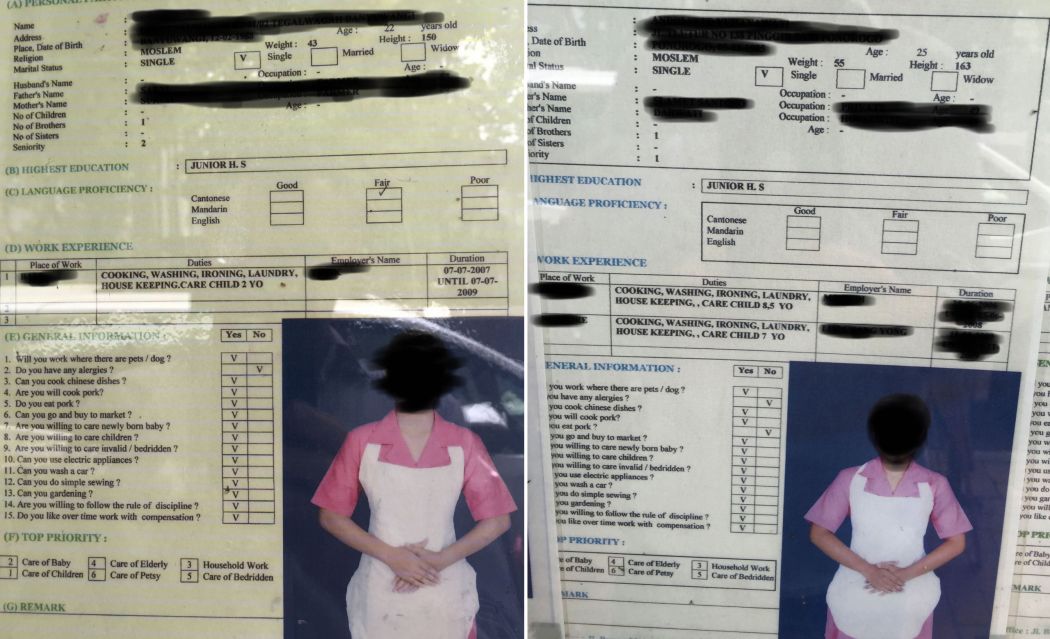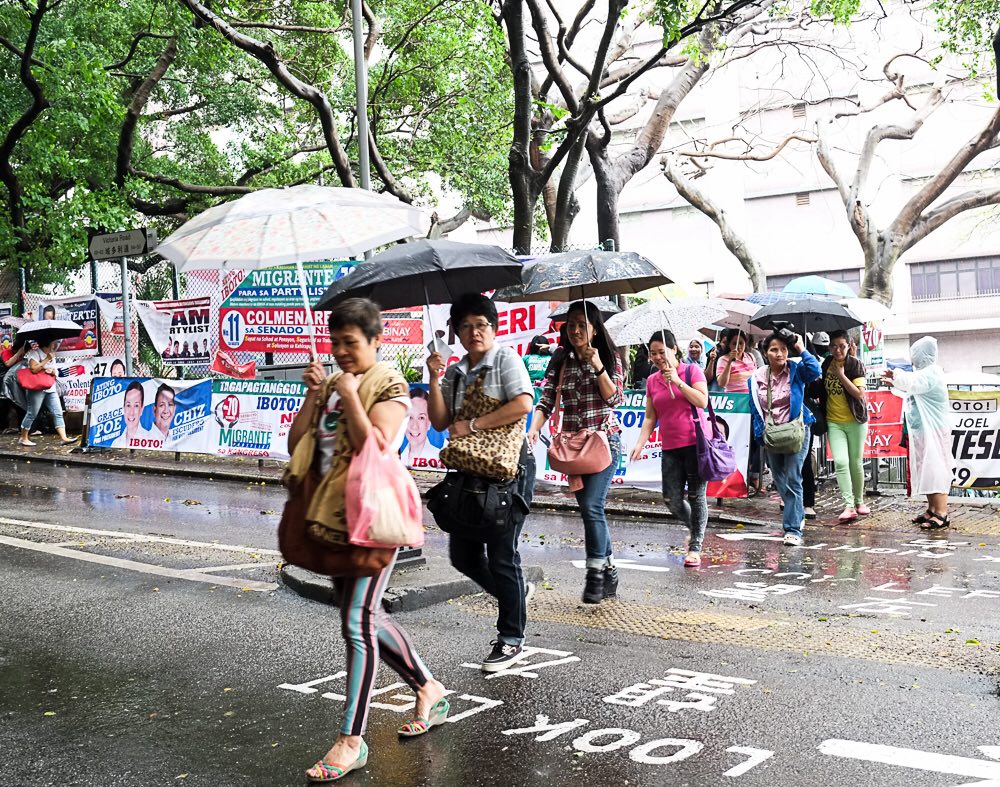While meeting someone for a research interview last week, I found myself outside an agent for Foreign Domestic Workers (FDW). The window was full of the details of women for prospective employers to browse. I was surprised to see how many of the details of the potential FDWs were on public display. These details included photographs, home addresses, date of birth, previous employers, and religion.
Of further interest was the fact that the women whose domestic services were being advertised also had a list of criteria that they were willing or able to do. These included items like
- Will you work with pets?
- Can you use electric appliances?
- Are you willing to follow the rule of discipline (one for all the Foucault lovers)?

But what really caught my eye were the questions pertaining to pork. Are you willing to cook pork? Are you willing to eat pork? Many of the women (all of whom were listed as Muslim) had ticked the box that they were willing to eat pork. I have previously written about the compromises that Indonesian FDWs often make in order to please their employers and complete their contracts. Halal food practices are often sacrificed as a way to gain employment and pay off debt.
Hong Kong’s employment practices for FDW do not provide workers with much protection. A lack of knowledge and legislation about religious discrimination means that employment agencies can ask these questions, and employers can refuse a candidate that they know is Muslim if they are not willing to eat pork. For an excellent discussion of the need for religious discrimination legislation in Hong Kong read this article by Chiara Formichi.

If these details are not alarming enough then please consider that these women’s religious affiliations and readiness to eat pork are listed along with their photos in plain view of the public.
It is clearly important for the Hong Kong government to do more to protect these FDWs and recognise them beyond commodities. It is also increasingly urgent that Hong Kong’s anti-discrimination legislation took a close and important look at the way religion becomes an important issue of identity and self determination that can be abused in the pursuit of gainful employment.
Dr Paul O’Connor is a Visiting Assistant Professor at Department of Sociology and Social Policy of Lingnan University.
